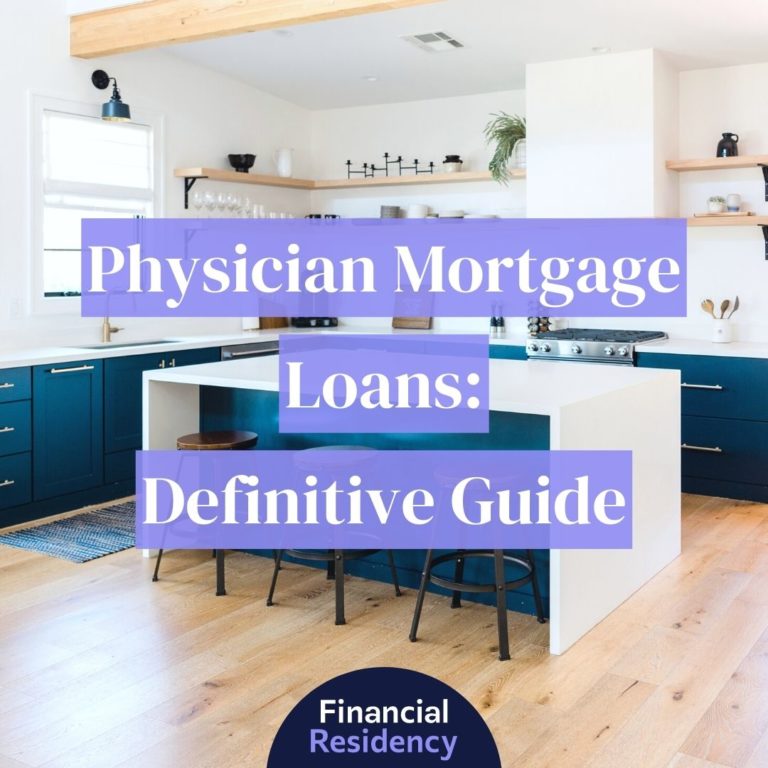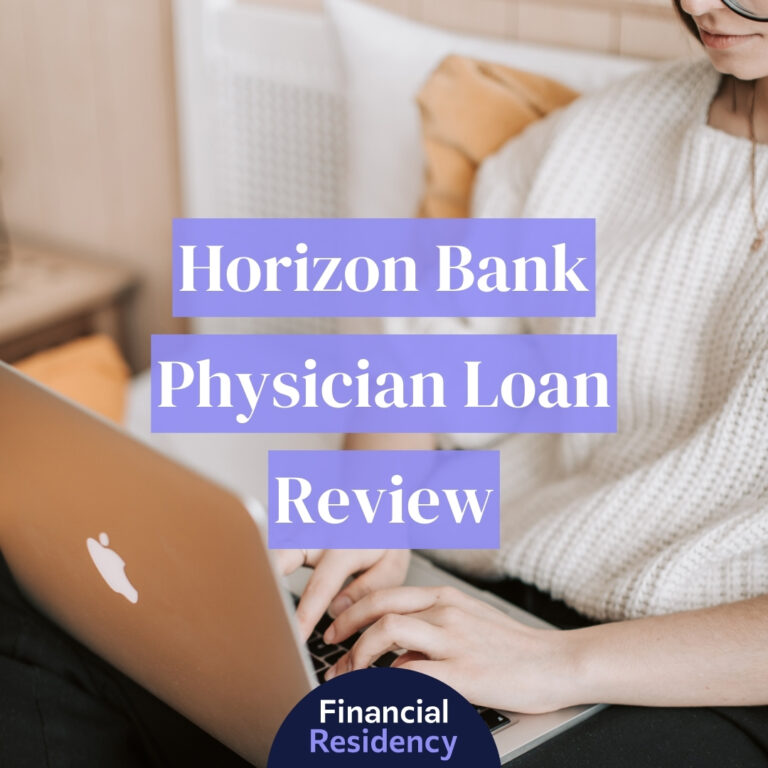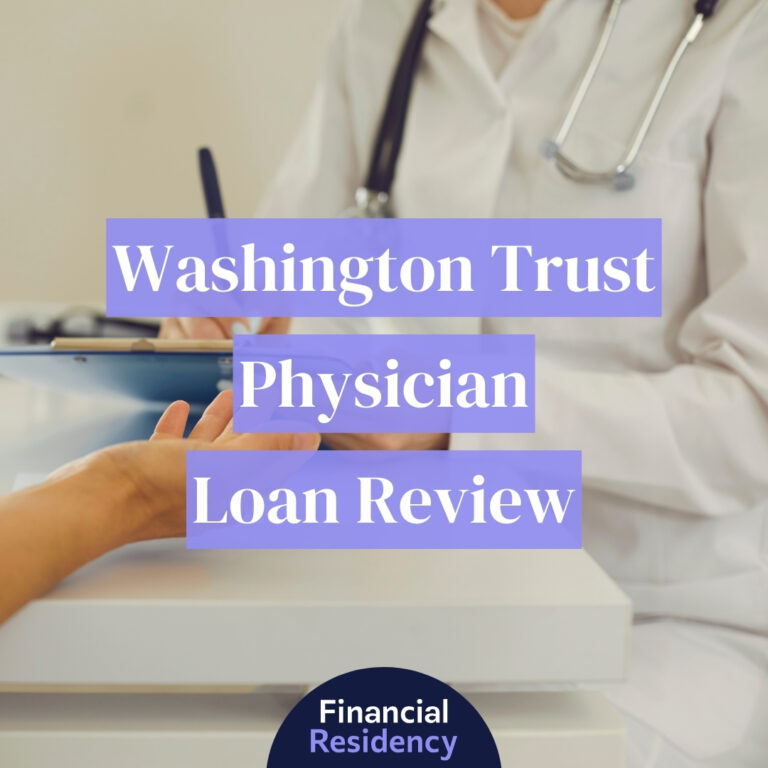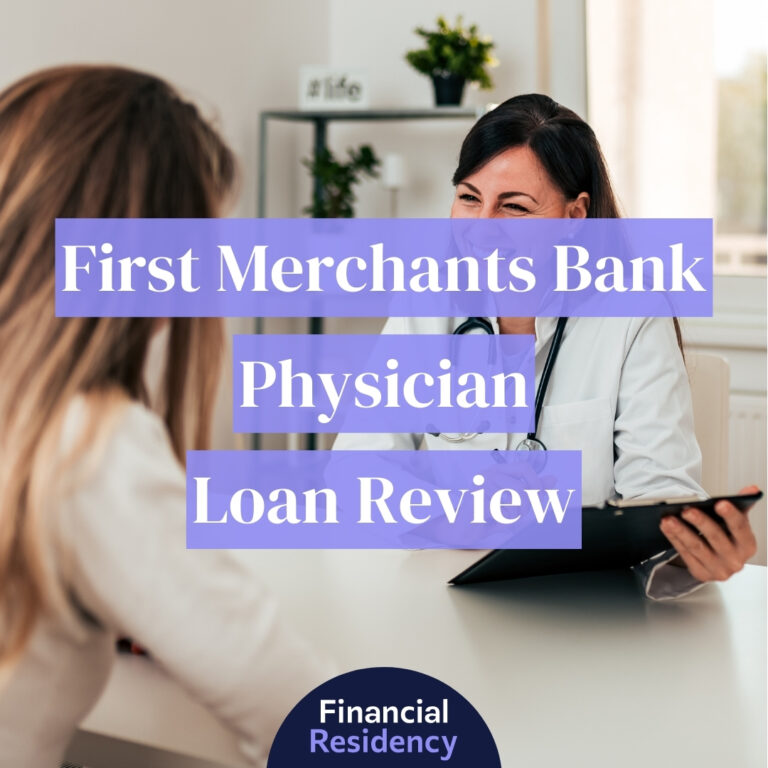If a move to D.C. is in your future, a physician loan in Washington D.C. is an essential tool for making the most of your finances and setting down roots in your dream home.
There are more than 7,300 physicians practicing in the district. You can join them in homeownership in the D.C. area with a physician mortgage loan tailored to your needs.
As you navigate the home-buying process, it’s important to work with a lender who understands the ins and outs of doctor home loans in Washington D.C. Their experience in the market will be a critical asset to you as you start the loan process.
If you’re ready to find the best physician loan in Washington D.C. for you and your family, then turn to one of our pre-vetted mortgage lenders who provide financing in the nation’s capital.
7 Best Washington D.C. Physician Home Loan Lenders
Here are the top physician mortgage loan lenders in DC:
Discover The Best Lenders in District Of Columbia Answer just a few questions about your career, where you're buying, and how much you want to borrow. Our service will then show you the exact programs you're eligible for from vetted physician loan specialists who will guide you through every step of the process – obligation-free!
1. BMO Financial Group
- BBB Grade: A+
- JD Power Score: 653
BMO Financial Group, formerly known as BMO Harris Bank, offers its Physicians’ Mortgage Program to licensed physicians and dentists with at least one of the following degrees:
- MD (Medical Doctor)
- DO (Doctor of Osteopathic Medicine)
- DDS (Doctor of Dental Surgery)
- DMD (Doctor of Dental Medicine)
Current residents and fellows are also eligible.
Loans are only available for the purchase of a new home or rate/term refinance of a property you already own. The eligible property types include 1-2 unit properties, single-family homes, condominiums, and townhouses. The property must be an owner-occupied primary residence to qualify.
The underwriting team has flexible debt-to-income (DTI) ratio guidelines, which allow student loan debt to be excluded or considered differently than conventional loan programs.
A lack of income history isn’t a problem either as long as borrowers can demonstrate proof of future income through a residency agreement or employment contract. Employment contracts must start within 90 days of closing to qualify.
The program offers a maximum loan amount of $2 million. Borrowers can qualify for 95% financing on loans up to $1.5 million or 90% financing on loans up to $2 million. All down payment options exclude private mortgage insurance (PMI).
The program doesn’t have an age limit, but medical professionals who have been practicing for more than 10 years will be limited to 90% financing options––meaning they’ll need to put down at least 10% of the home’s purchase price regardless of the loan amount.
All standard and adjustable-rate mortgage products are available.
Learn More:
2. Citizens Bank
- BBB Grade: B+
- JD Power Score: 627
Citizens Bank’s doctor mortgage loan program is open to medical professionals within the first 10 years of their careers. Borrowers must have one of the following medical designations to qualify:
- MD
- DO
- DDS
- DMD
Interns, residents, and fellows are also included. Borrowers may qualify for loans up to $850,000 with just a 5% down payment, but other down payment options are available. Loans up to $1 million require a 10% down payment and loans up to $1.5 million require a 15% down payment.
The program is capped at $1.5 million. All down payment options through Citizens Bank’s physician loan program waive PMI requirements, which can keep mortgage payments affordable.
Student loan debt deferred for at least one year will not be factored into the credit approval process. Borrowers may also use their income-driven repayment amounts to calculate monthly DTI, which can make it easier to qualify.
The program offers financing for the purchase of an existing home or the construction of a new primary residence.
Borrowers can qualify for fixed-rate mortgages with 10, 15, 20, or 30-year loan terms. Adjustable-rate mortgage products can be structured with 3/1, 5/1, 7/1, or 10/1 terms.
The first number refers to the length of the introductory fixed interest rate. After this period expires, the loan will reset to the current market rate at six-month intervals.
Learn More:
3. Evolve Bank & Trust
- BBB Grade: B
- JD Power Score: N/A
Evolve Bank & Trust offers one of the more inclusive medical professional loan programs on the market. In addition to the typical doctors and dentists, it includes other advanced degree holders with the first 10 years of their medical careers.
The following designations are included:
- MD
- DO
- DDS
- DMD
- PA (Physician Assistant)
- NP (Nurse Practitioner)
- DVM (Veterinarian)
- CRNA (Nurse Anesthetist)
- DC (Chiropractor)
- OD (Optometrist)
- DPM (Podiatrist)
- PharmD/RPH (Pharmacist)
- Clinical Nurse Specialist
The program will extend up to $2 million without requiring private mortgage insurance.
Borrowers can qualify for 100% financing on loans up to $1 million. Loans up to $1.25 million require a 5% down payment, loans up to $1.5 million require a 10% down payment, and loans up to $2 million require a 15% down payment.
Loans may be used to purchase or refinance a 1-4 unit property, single-family home, or condominium. Construction loans are also available.
Evolve Bank & Trust offers fully underwritten pre-approval at no cost. The underwriting team will make exceptions on an individual basis. They will work with aggressive DTI ratios and lower credit scores than competitors.
Borrowers who have not yet started working can use a future employment contract to qualify. Minimum cash reserves will be required, but it depends on the total loan amount. Borrowers can use gift funds and a non-occupant co-signer if they are unable to qualify for financing on their own.
Learn More:
4. Flagstar Bank
- BBB Grade: NR
- JD Power Score: 625
Flagstar Bank’s Professional Loan Program is even more inclusive than Evolve Bank & Trust. It offers special financing options for borrowers with the following degrees:
- Medical Resident (Educational License)
- MD
- DDS
- DMD
- OD
- PharmD/RPH
- DPM
- DO
- PA
- RN
- CRNA
- NPA
- Clinical Nurse Specialist
- ATP Pilot
- Certified Public Accountant (CPA)
- Attorney (JD)
- DVM
All applicants must be within 10 years of beginning their careers to qualify. Borrowers with a 720 minimum credit score will be eligible for 100% financing on loans up to $1 million, but there are low down payment options for loans up to $1.5 million. PMI is not required.
Borrowers will need to meet minimum reserve requirements, but interested party contributions are allowed. Loans may be used to purchase or rate/term refinance a single-family residence, condominium, or planned unit development they will use as a primary residence.
The Professional Loan Program is unique in that it only offers adjustable-rate mortgages. Adjustable-rate mortgages (ARMs) start with an initial fixed initial interest rate that may be lower than conventional mortgages. After this rate expires, the interest rate will reset at six-month intervals.
Flagstar Bank offers introductory fixed-rate periods of 60, 84, and 120 months.
Learn More:
5. TD Bank
- BBB Grade: A+
- JD Power Score: 670
TD Bank’s Medical Professional Mortgage Program is open to licensed residents, fellows, practicing physicians, dentists, oral surgeons, and private practice owners who have been self-employed for at least two years. All borrowers must be within 10 years of beginning their careers to qualify.
Loans may be used to purchase or refinance a single-family home, condominium, or property in a planned unit development as long as it is used as the borrower’s primary residence. In select markets, properties in co-op buildings may be approved.
Borrowers can qualify for 100% financing on loans up to $1 million, 95% financing on loans up to $1.5 million, or 89.01% financing on loans up to $2 million.
All down payment options waive PMI. Borrowers can choose fixed and adjustable rate options.
The underwriting team will be flexible with student loan debt so early-career medical professionals are in a better position to qualify. Like other physician loan programs, borrowers can use a future-dated employment contract as proof of earning potential.
Learn More:
6. Truist Bank
- BBB Grade: A+
- JD Power Score: 598
Truist Bank extends its physician mortgage program to borrowers with an MD, DO, DPM, DDS, or DMD degree. Residents are included.
All borrowers must be within 15 years of beginning their careers, but borrowers within the first 10 years of their careers will qualify for the lowest down payment options.
The program has a maximum loan amount of $2 million, but down payment options will come down to seniority and the credit approval process.
Borrowers within the first 10 years of their careers can qualify for 100% financing, but borrowers within 10-15 years of beginning their careers will need to put down at least 10% of the home’s purchase price.
Non-permanent residents are also eligible, but they’ll need to put down at least 15%. The program has minimum reserve requirements, but these amounts will depend on the total loan balance.
Borrowers may also cash out refinance up to 80% of their primary residence’s appraisal value. They may take up to $50,000 cash but all other funds must be used to satisfy outstanding debt.
Fixed and adjustable-rate mortgage options are available. Loans may be used to purchase attached or detached condominiums, townhouses, and properties in a planned unit development.
Borrowers may close up to 90 days before they start employment with an acceptable contract.
Learn More:
7. U.S. Bank
- BBB Grade: A-
- JD Power Score: 667
U.S. Bank limits its physician loan program to medical doctors and doctors of osteopathic medicine, but residents and fellows are included. All borrowers must have a 710 minimum credit score, but the program does not impose an age limit.
The program has a maximum loan amount of $2.5 million, but down payment options vary. The program does not have a 100% financing option, so there will be some costs to consider.
Borrowers can qualify for down payment options as low as 5% on loans up to $1 million. Loans up to $1.5 million will require a 10% down payment. Loans up to $2 million will require a 15% down payment.
PMI is not required. The program won’t disregard student loan debt entirely, but it will be flexible. For borrowers in deferment, 2% of the total loan balance will be used to calculate the DTI ratio.
Learn More:
How Physician Mortgage Loans Work in Washington D.C.
Washington, D.C., and the surrounding area are known for their staggering real estate prices and overall high cost of living.
While it boasts many of the nation’s most impressive healthcare facilities and universities, few early-career medical professionals have the income and debt threshold necessary to make a competitive offer in such a challenging market.
That’s where physician mortgage loans come in.
Higher Loan Amounts
FHA loans and conforming conventional loans are capped at $1,089,300 for the purchase of single-family residences. This loan amount is significantly higher than in other areas of the country, but the average home price in Washington D.C. is also much higher at $630,778.
Physician mortgage loans give medical professionals access to larger loan amounts than government-sponsored and conventional loans can offer. The total loan amount you qualify for will depend on your credit score, income, and DTI ratio, but the typical physician loan program offers a maximum loan amount between $750,000 and $1.5 million.
Some physician loan programs are even more generous––offering more than $2 million to qualified borrowers. Borrowers can secure these loan amounts for a low down payment compared to conventional mortgages.
Lower Down Payment Requirements
The typical conventional mortgage requires a 20% down payment or borrowers will need to make monthly PMI payments. PMI is a percentage of the total loan balance and it’s added to all mortgage payments until you reach 20% home equity. On the other hand, physician mortgages may not require a down payment at all, but other down payment options can range from 5–15%.
No PMI
Even at this lower down payment threshold, physician loan programs don’t require PMI. Waiving PMI requirements can save borrowers thousands of dollars by the time the loan matures––making it a more affordable loan than conventional loans of the same amount.
Physician mortgages have a few other common characteristics you can count on from lender to lender:
- Student loan debt may be reduced or excluded from DTI calculations.
- Financing is reserved for owner-occupied primary residence.
- Refinancing options are available for existing homes.
- A 700 minimum credit score is preferred, but lenders may work with borrowers who can make a larger down payment.
Pros and Cons
Every decision has its pros and cons; physician loans in Washington D.C. aren’t any different. Weighing the costs and benefits of your loan options can help you make an informed choice that supports your long-term financial goals.
We’ve prepared a few notable call-out pros and cons for you to consider throughout the home-buying process.
Pros
- Higher loan limits: Physician loans give medical professionals access to larger loan amounts than conventional mortgage programs––often millions of dollars, which allows home buyers to place competitive offers in expensive housing markets such as DC.
- Low down payment options: Physician loans provide 85–100% financing to qualified borrowers with an eligible medical degree. The required down payment usually depends on the total loan amount.
- No PMI: Physician mortgage loans don’t require private mortgage insurance, which can save borrowers thousands of dollars throughout the loan term.
- Employment contract: Medical professionals starting new jobs can use a signed and fully executed employment contract that begins within 60–90 days of closing as proof of earning potential. This flexibility allows borrowers to settle into their new homes before beginning work.
- Flexible debt-to-income ratio calculators: Physician loan underwriters are flexible with student loan debt when calculating borrowers’ DTI ratios, which can make it easier to qualify.
- Refinancing options: Physician mortgage loans can be used to rate/term or cash-out refinance a property a medical professional already owns.
- Knowledgeable loan officers: Doctor mortgage loan officers have first-hand knowledge of medical professionals’ needs throughout the home-buying process, so they are uniquely able to assist borrowers and provide resources that streamline underwriting.
- Open to a wide range of high-income professionals: Physician mortgages aren’t exclusive to doctors. Many programs expand their eligible professions to include dentists, nurses, veterinarians, and more.
- Construction loans: Doctor mortgage loans aren’t just for the purchase or refinance of an existing structure. Some loan programs will provide special construction loan options.
Cons
- Primary residence restrictions: Doctor loan programs often limited financing to owner-occupied primary residents. Investment properties and second homes are ineligible.
- Higher interest rates: Though it’s not always the case, physician mortgage loans may have slightly higher interest rates than conventional mortgage programs. Some lenders only offer adjustable-rate mortgages, which can be more costly over the life of the loan.
- Closing costs and cash reserves: Physician loan programs will require closing costs and sufficient cash reserves, even with 100% financing.
- Age limits: Some physician mortgage programs are only open to medical professionals who have completed residency within the last 10 years.
- Higher minimum credit score: Doctor mortgages generally require a 700 minimum credit score, which is much higher than the minimum credit score for a conventional mortgage or government-sponsored loan.
- No standard eligibility: Every mortgage lender accepts different healthcare professionals into its physician mortgage program.
Frequently Asked Questions
How long does it take to get a physician loan in Washington D.C.?
Filling out an application online or in person can take a few minutes to complete. Pre Approval can be nearly instant as well, but the underwriting and closing process for a physician loan depends on the lender.
The best way to ensure a smooth and efficient home-buying process is to work with a knowledgeable loan officer who can help you gather all the necessary documentation proactively.
Can you get a loan without a job?
You can get a loan without a job if you have an eligible cosigner, sufficient collateral, or proof of an alternative stream of income. Medical professionals can secure physician loan financing with a signed employment contract for a new job.
The new job must start within 60–90 days of closing on the loan and borrowers will be responsible for all debt obligations between closing and starting employment.
What is the average credit score for a physician?
There isn’t a lot of data on the average credit score of a physician, but the average American credit score is approximately 714, according to Experian’s 2022 Report. A minimum credit score of 700 puts borrowers in the best position to secure favorable loan terms and a high loan amount through a physician loan in Washington D.C.
Is a physician required to have a cosigner for a physician loan in Washington D.C.?
No, a physician is not required to have a cosigner for a physician loan, but some lenders will allow a non-occupant cosigner for borrowers who don’t pass the credit approval process.
Borrowers with a strong credit profile, verifiable income, a qualifying medical degree, and sufficient cash reserves are the least likely to need a cosigner for a physician loan.
Who is a Physician Loan in Washington D.C. Best For?
Big financial decisions, like choosing your mortgage provider and loan program, tend to get consumers stuck in analysis paralysis. Identifying with others who have benefited from physician mortgage loans can help you decide if it’s the right choice for your financial situation.
We’ve prepared a few example scenarios of people who may be a strong fit for physician loans in Washington D.C.
1. Recent graduates relocating for residency
Many medical school graduates have to relocate to continue their training and residency. Moving is expensive and it can be particularly stressful if you have limited savings. Physician mortgages can make this process easier by providing financing before you start work.
Physician mortgage loans require little to no down payment, which can make home ownership more affordable. In addition to the lower cost benefits, physician mortgage lenders will also work with borrowers who have yet to start their new jobs.
Acceptable employment contracts must be signed, fully executed, and have a clear base salary and anticipated start date within 90 days of closing.
2. Physician shopping for the best rate options
Physicians and other medical professionals with a strong credit profile are in an excellent position to compare multiple loan programs. Shopping around can be the best method of accessing the lowest interest rate available to you.
Physicians are in the unique position of qualifying for programs open to the general public and specialty loan programs geared exclusively toward medical professionals. Applying and getting preapproved for both conventional mortgages and physician loans can help you zero in on the best interest rate and loan terms.
3. Medical professionals focused on retirement planning
Over the last several years, there has been a rise in early retirement, but even without early retirement, it’s going to be costly to keep up with inflation after you eventually stop working. As such, many people have been focused on saving as much for retirement as they can reasonably budget.
Saving for a down payment or paying monthly PMI can cut into retirement planning goals. Physician mortgage programs can help borrowers purchase their dream homes while still focusing on retirement investment.
4. Homeowners interested in cash-out refinancing options
Mortgages aren’t the only opportunities to purchase a new home. Refinancing your existing mortgage can help you access lower interest rates or lower your monthly payment by giving you access to your equity and reducing your principal balance.
Cash-out refinances allow borrowers to leverage their home equity to make home improvements, pay down debt, or use their cash for whatever their hearts desire.
Existing homeowners with a qualifying medical degree can use physician mortgage loans to refinance their homes while also using their home equity to accomplish other goals.
Moving to a Different State?
Click on the state you are moving to and get the best physician mortgage loan lenders in that state:
Learn more about physician home loans.




